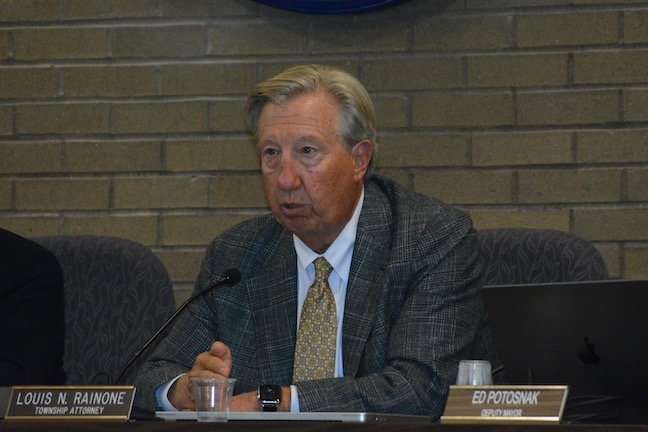
Township planning officials are studying a state Department of Community Affairs report, released last week, designed to provide guidance on state towns’ affordable housing obligation over the next decade.
The report, described by the state DCA as “guidance” as opposed to a mandate, sets 714 as the number of affordable homes Franklin should accommodate between 2025 and 2035.
The number is the highest in Somerset County, and in the top 15 in the state, according to state DCA calculations.
Hillsborough has the second-highest proposed obligation in Somerset County with 565 units.
“We are still reviewing/ digesting the DCA report,” Township Principal Planner Mark Healey said in an emailed comment.
According to the DCA press release, the proposed affordable housing obligation numbers were reached through a calculation of criteria set by a bill signed into law in March by Gov. Phil Murphy. The bill was designed to establish “a new framework for determining and enforcing municipalities’ affordable housing obligations under the New Jersey Supreme Court’s Mount Laurel doctrine and the State’s Fair Housing Act.”
The calculation included a number of different factors mandated by the new law. Those factors include present need and deficient low- and moderate-income occupied housing, which towns qualify as Urban Aid Municipalities, prospective need for individual regions, changes in non-residential property valuations, the extent to which a municipality’s income level differs from that of the
lowest-income municipality in its Housing Region, and total developable acreage for each town.
“The calculations help address New Jersey’s housing shortage by equipping municipalities with clear numbers so they can better plan on how to provide affordable housing options in their communities,” DCA Commissioner Jacquelyn A. Suárez said in a press release about the report. “The new law provides a unique opportunity to develop ‘missing middle’ housing – options like townhouses, duplexes, and other types of multi-family units – that bridge the gap between single-family homes and large apartment complexes, offering the diverse housing choices that New Jersey families desire and need.”
Township Attorney Lou Rainone said at the October 22 Township Council meeting that the DCA report notwithstanding, the final affordable housing obligation numbers will be determined by towns. The deadline to do so is January 31, 2025.
“So when everybody says, well, our number is X and now we’re gonna have to build all of this affordable housing, the answer is we don’t know, we just got that number the same day that the public got it, the municipalities got it, and all the background data,” Rainone said. “We’re in the process of analyzing it.”
“What our ultimate number is, is the number that the township determines, is the number based upon the guidelines that are in the state statute, and with the guidance of the DCA number,” he said.
“This is just a preliminary step in a process that starts really next year,” Rainone said.
Rainone noted that this new process is different from prior rounds of determining affordable housing obligations.
“In the last two rounds, in round two and in the beginning of round three, DCA published a number that was your number,” he said. “That’s not what happened last Friday. What happened last Friday is DCA put out a number that is a non-binding number and it is advisory, the determination as to the actual number is going to be based upon a resolution passed by the council next year.”
“I guess that’s the main point, that people shouldn’t be glued to that number,” he said.
The New Jersey Judiciary will resolve disputes about municipalities’ affordable housing responsibilities and their plans to satisfy those responsibilities with assistance from a new dispute resolution program called the Affordable Housing Dispute Resolution Program, according to the release.
The law outlines how municipalities may receive “bonus credits” that allow affordable housing units to be credited as 1.5 or 2 units in certain circumstances, according to the release. This bonus credit system is designed to incentivize age-restricted housing, housing set aside for individuals with special needs, and other location or purpose-specific housing projects, such as housing near mass transit stations.
The law limits bonus credit units to 25 percent of a municipality’s prospective need, according to the release. It establishes related parameters for how much of a municipality’s responsibilities must be satisfied through housing available to families with children and rental housing.
The Department will support municipalities by appointing housing liaisons to streamline affordable housing efforts, helping cities meet their obligations, utilize affordable housing trust funds, and track project completion, according to the release. There will be ongoing training for these liaisons and administrative agents.
Launching in early 2025, NJ Housing Opportunities for Municipal Equity and Success (NJHOMES) will offer comprehensive support for municipalities to develop affordable housing that aligns with community needs, according to the release.
This initiative will provide financial resources, technical assistance, and tools to address opposition and promote sustainable development, according to the release. NJHOMES will also introduce an Affordable Housing Playbook & Toolkit, featuring best practices, zoning guidance, case studies, and outreach materials to assist municipalities in developing affordable housing that meets their communities’ individual needs.
Additionally, the NJHOMES Institute will offer virtual and in-person training while planning grants and technical assistance will help municipalities develop effective housing strategies, according to the release.
 The Franklin Reporter & Advocate Eight Villages, One Community
The Franklin Reporter & Advocate Eight Villages, One Community

